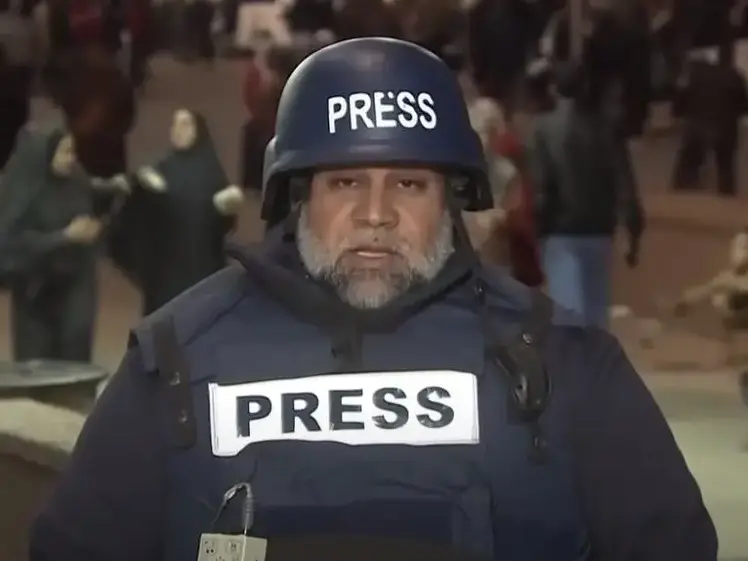
Rishi Sunak has been urged to “act immediately” to protect journalists in Gaza who are being killed in unprecedented numbers.
At least 85 journalists and media workers have been killed since the war between Israel and Hamas began on 7 October, according to the Committee to Protect Journalists (CPJ).
Nine press freedom organisations wrote to Prime Minister Sunak on Thursday saying the Government “can and must do more” to protect journalists in Gaza and pursue accountability for those who have been killed.
The indiscriminate or targeted killing of journalists, whether reckless or deliberate, is considered a war crime.
The letter said: “The killing of so many journalists in so brief a period is shocking and horrific. It has obvious and profound implications for the ability of the public, including British citizens, to be informed about a conflict with local, regional, and global implications.”
The letter also detailed concerns regarding Israel and Egypt’s ban on international journalists entering Gaza without IDF supervision, internet shutdowns, censorship of war reporting covered by Israeli news outlets, and “growing evidence” that the IDF have deliberately targeted journalists.
The signatories included CPJ, Article 19, English PEN, Irish PEN, National Union of Journalists, PEN International, Reporters Without Borders (RSF), Scottish PEN and Wales PEN Cymru.
The letter included six demands for Rishi Sunak:
- Publicly call on all parties to the conflict to respect the right of journalists to report on hostilities, ensuring their safety
- Demand that Israel and Egypt allow international journalists access to Gaza and cease communication blackouts
- Conduct transparent and public assessments of the end-use of UK weapons and military assistance to Israel
- Demand that Israel allow the safe transportation of personal protective equipment and materials used for newsgathering
- Support transparent independent investigations into the killing of all journalists
- Publicly call for immediate cessation of hostilities to protect civilians
Last month a very similar letter was submitted to US President Joe Biden with the same first five demands but without the call for a ceasefire.
Wael Al-Dahdouh, Al Jazeera’s Gaza bureau chief who has himself been wounded and lost multiple members of his family since the war began, told MSNBC last month: “We sit in our homes, waiting for missiles to land. Do we give up this job? Give up this humanitarian message that we deliver? This is definitely not an option, at least not in our dictionary and according to our convictions.”
The International Criminal Court confirmed last month it will investigate alleged war crimes against journalists after RSF submitted two complaints.
The IDF acknowledged deliberately targeting a car on 7 January, killing two journalists including Al-Dahdouh’s son but saying it was targeting a terrorist in the vehicle. Meanwhile Human Rights Watch has said that IDF strikes in southern Lebanon on 13 October that killed one journalist, Reuters’ Issam Abdallah, and injured six others, were intentional. RSF agreed, finding that a vehicle marked “press” was targeted “and it was also clear that the group stationed next to it was journalists”.
Amid the attacks on Gaza, very few non-Palestinian journalists have been able to enter without an IDF military escort. CNN’s Clarissa Ward was a rare exception when she entered undetected with an Emirati medical team in December. As a result 78 of the journalists killed so far have been Palestinian, many of whom died alongside members of their families in airstrikes.
The UK is a signatory to the Media Freedom Coalition’s “statement on the safety of journalists and media workers in conflict” which calls on “all parties to the conflict to comply with international law and guarantee the protection of journalists and media workers”.
Last month, more than 30 MPs signed a motion to express “extreme concern” at the death toll of journalists in Gaza and urge the International Criminal Court to expedite its investigation.
The new letter stated: “The United Kingdom should use its considerable influence with the Israeli government to press them to ensure that journalists are able to safely document military operations and to shed light on their compliance with international humanitarian law.”
Email pged@pressgazette.co.uk to point out mistakes, provide story tips or send in a letter for publication on our "Letters Page" blog
